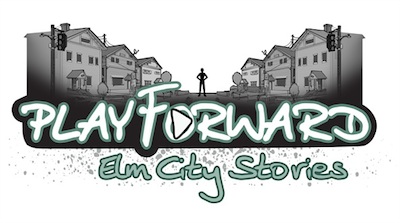 In 2009, 39 percent of new HIV infections were among individuals aged 13 to 29, which was a 21 percent increase since 2006, according to Associate Research Scientist Dr. Kim Hieftje. In her talk at Games for Health in Boston this week Hieftje discussed her new HIV prevention iPad game, PlayForward: Elm City Stories, which tests kids in socially compromising simulations to see if her game affects the way they approach safe sex and other moral questions.
In 2009, 39 percent of new HIV infections were among individuals aged 13 to 29, which was a 21 percent increase since 2006, according to Associate Research Scientist Dr. Kim Hieftje. In her talk at Games for Health in Boston this week Hieftje discussed her new HIV prevention iPad game, PlayForward: Elm City Stories, which tests kids in socially compromising simulations to see if her game affects the way they approach safe sex and other moral questions.
"We know there’s this optimal window in which we think we can really inform and engage adolescents before they start having sex," Hieftje said. "So we really wanted to focus on that window right before they start engaging in sexual activity so we are looking at ages 10 to 14. This age is really active in playing video games as well."
When Associate Professor of Medicine Dr. Lynn Fiellin acquired NIH funding to work on a project to help at-risk youth avoid behaviors that lead to HIV infection and ultimately delay of sexual initiation, she, Hieftje and their team formed play2Prevent, an initiative that would work to reach Fiellin and Hieftje's goals. PlayForward is play2Prevent's first big undertaking.
PlayForward is a role-playing game where every student builds an avatar, created to motivate the students, that they play from seventh grade until high school. This avatar goes through a series of mini games within an overarching storyline of dealing with daily social problems of adolescent youth.
"When we say behavior change, that means we need to step beyond just teaching kids, giving kids knowledge, teaching them about risk, teaching them about HIV and sex and condoms," Hieftje said. "We actually have to give them the skills to be able to feel comfortable saying 'no', give them clever ways to say 'no', avoid peer pressure and get out of situations they don't want to be in. In order to change behavior we have to focus on increasing their self efficacy, their ability to be able to say 'no' or their ability to be able to walk away. We have to correct their social norms."
Designed with a graphic novel style type and interactive elements, the game forces students to make the wrong decisions and then negotiate their way into the safer choices.
"Kids know the answer...kids know that they want you to say 'no'," Hieftje said. "They know that the answer is 'no'. And they know that if they say the right answer, that's where they get the most points."
So far, 54 students have finished playing the game. Hieftje's team started in January and expect to enroll another 90 to 100 this summer. By the end of the trial, 330 teens will have been enrolled. Of the total group, half play PlayForward and the other half play random games downloaded from the iPad store.




















